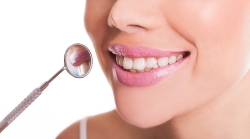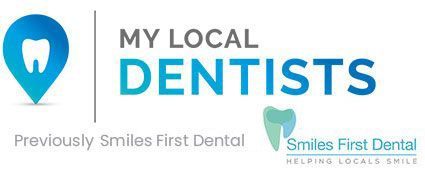Blog
Dental News & Articles from My Local Dentists Northmead
How Mouthwash Helps In Upholding Oral Wellness
 Observing proper oral hygiene is important in making sure that you are protected from unwanted dental and oral health issues. As such, dental care experts continue to stress that you should brush your teeth twice and floss on a daily basis.
Observing proper oral hygiene is important in making sure that you are protected from unwanted dental and oral health issues. As such, dental care experts continue to stress that you should brush your teeth twice and floss on a daily basis.
In addition to these two essential dental habits, it is also recommended to rinse your mouth with a dentist-approved mouthwash in order to ensure that your teeth, gums, and mouth are perfectly clean.
The mouthwash does not only keep your breath fresh. Its benefits can go way beyond just getting rid of that bad odour in your breath. It actually helps in maintaining and even improving your dental and oral health through several ways.
Dental Fear Can Be Passed On From Parents To Their Kids
Learning How To Floss Must Start Early
Eating Disorders Can Cause Dental Health Problems
Factors Affecting Your Suitability For Dental Implants
Dental implants are the most modern solution when it comes to addressing tooth loss and...
4 Fast Facts About Root Canal Treatment
Arguably, root canal treatment is one of the most feared yet highly misunderstood dental...
Keeping Your Toothbrush From Bacterial Contamination
Today’s Dental Health Compared To That In The Stone Age
 The prevalence of dental health anomalies continues to be the problem to this day and age. Despite the substantial progress in our approaches when it comes to dealing with these concerns, our dental health in general is continuously at risk. In fact, a survey reveals that 75 per cent of adults wish they took better care of their teeth and gums. Only 11 per cent of the population rate their oral wellness as excellent.
The prevalence of dental health anomalies continues to be the problem to this day and age. Despite the substantial progress in our approaches when it comes to dealing with these concerns, our dental health in general is continuously at risk. In fact, a survey reveals that 75 per cent of adults wish they took better care of their teeth and gums. Only 11 per cent of the population rate their oral wellness as excellent.
Have you ever wondered how our current situation compares to dental health back in the stone-age? The answers are most likely to surprise you.
In order to make this comparison, a team of researchers from all over the world examined genetic materials that had been preserved in tartar found on prehistoric human skeletons. The researchers used these samples to get a better understanding of how oral bacteria changed throughout history, from the Stone Age to the Industrial Revolution.
According to the lead author, by analysing the genetic material found in plaque, they were able to create records of how dietary choices and other relevant factors impact the overall status of our ancestors’ dental and oral health.
